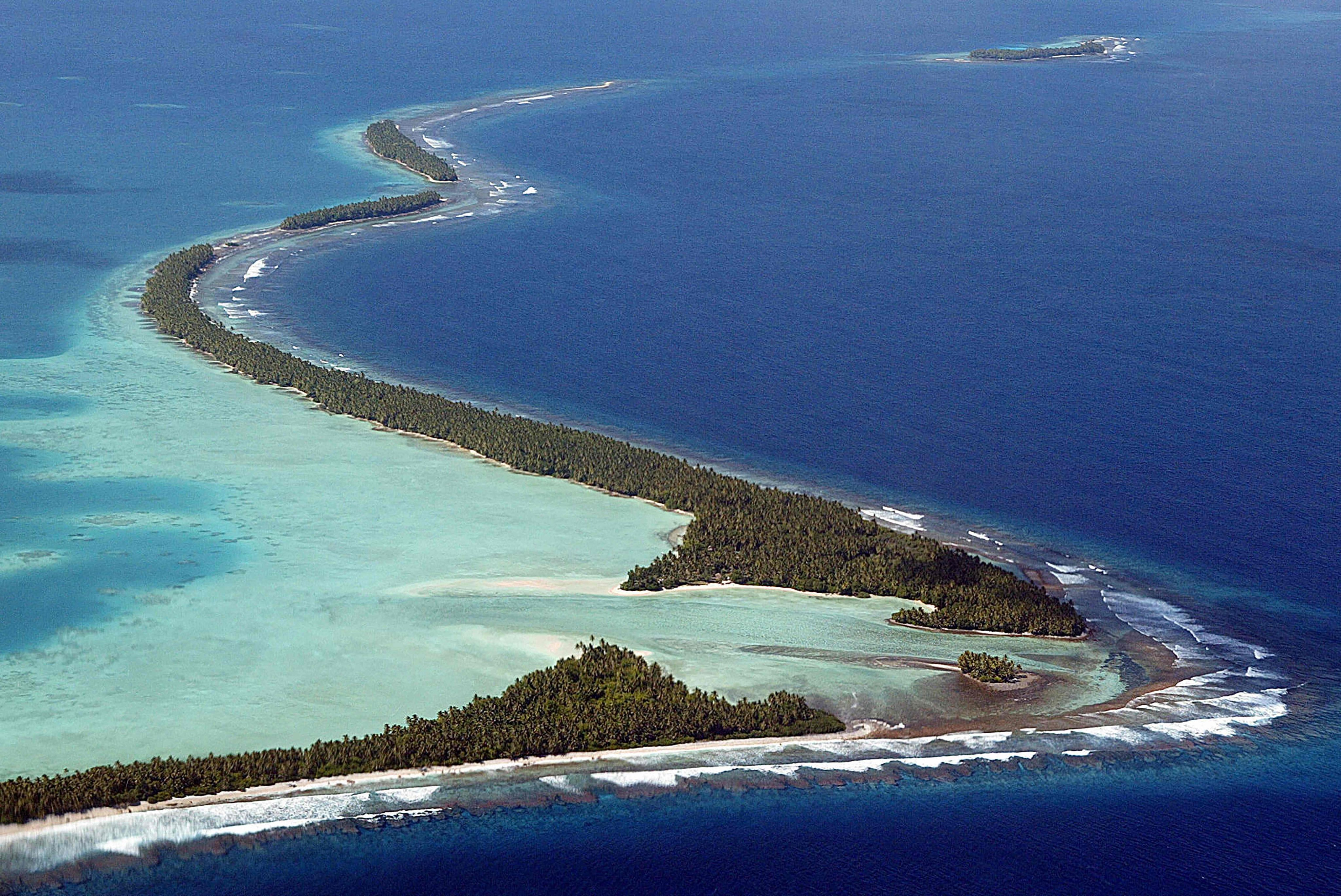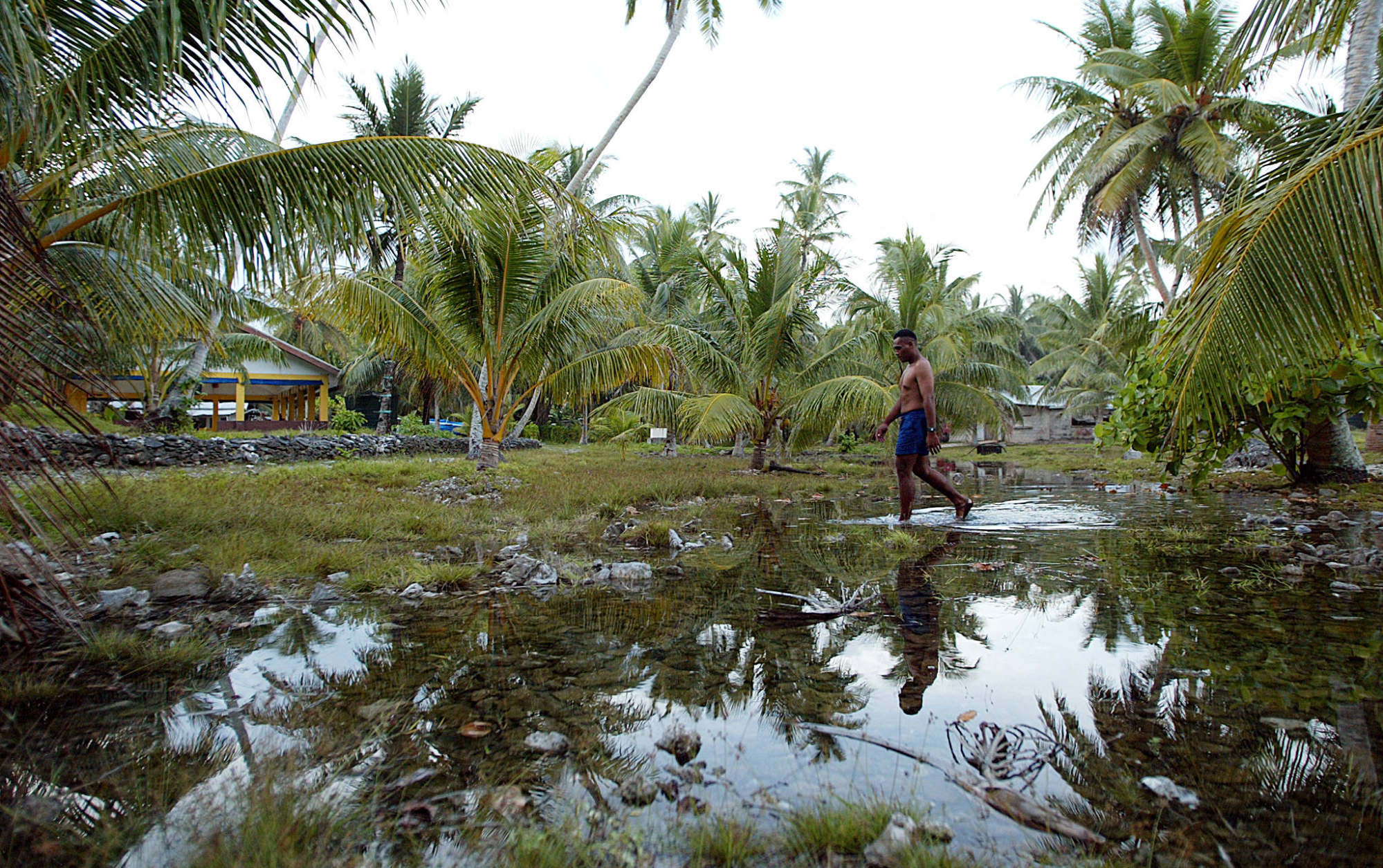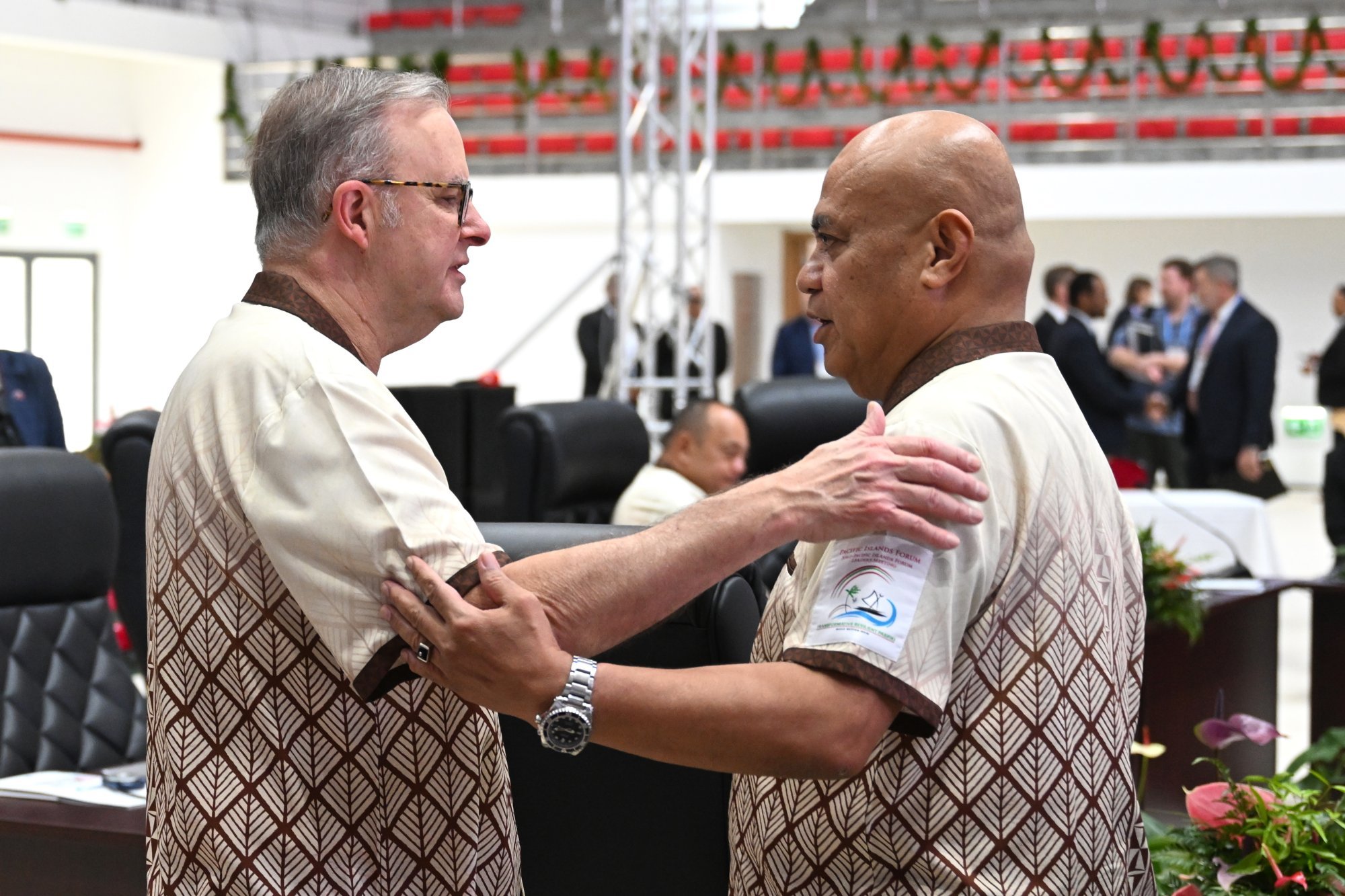The future of climate migration? Tuvalu’s people seek a new home in Australia
About 3,125 Tuvaluans have entered the ballot for a climate visa to live in Australia, but analysts warn of brain drain

More than 3,000 Tuvaluans have applied for a landmark climate visa to move to Australia, as rising seas threaten to engulf vulnerable areas of the South Pacific island.
Australia last week opened a new visa category specially set aside for adult citizens of Tuvalu following the groundbreaking climate migration pact, Falepili Union, signed in 2023.
About 3,125 Tuvaluans – accounting for nearly a third of the population – had already entered the ballot within four days of its opening, Agence France-Presse reported, citing official data.
Tuvalu is home to 10,643 people, according to 2022 census figures.
Australia is offering visas to 280 Tuvaluans annually, with the ballot for the 2025-26 programme year closing on July 18. The visa requires an A$25 (US$16) registration fee.

Canberra has hailed the climate migration pact as “the first agreement of its kind anywhere in the world”.
“This is the first agreement of its kind anywhere in the world, providing a pathway for mobility with dignity as climate impacts worsen,” said a spokesperson for Australia’s foreign affairs department.
Tuvalu is one of the most climate-threatened regions of the planet, and scientists have warned that the island nation is likely to have only 80 years before it becomes uninhabitable.
Rising sea levels have nearly submerged two of the nation’s nine coral atolls – ring-shaped coral reefs that encircle a lagoon.
“Australia recognises the devastating impact climate change is having on the livelihoods, security, and well-being of climate vulnerable countries and people, particularly in the Pacific region,” said Australia’s foreign affairs department.
However, this climate migration has raised concerns about brain drain, potentially stripping Tuvalu and similar nations of their most skilled workers and youthful demographic.
“Small states do not have many jobs and some activities don’t need that many people,” University of Sydney geographer John Connell told Agence France-Presse, noting that a long-term drain of workers could endanger Tuvalu’s future.
“Atolls don’t offer much of a future: agriculture is hard, fisheries offer wonderful potential, but it doesn’t generate employment,” Connell added.

In addition to visas, the Faleplili pact also binds Australia to protect Tuvalu against natural disasters, public health emergencies and “military aggression”.
“For the first time, there is a country that has committed legally to come to the aid of Tuvalu, upon request, when Tuvalu encounters a major natural disaster, a health pandemic or military aggression,” Tuvaluan Prime Minister Feleti Teo said last year when the pact entered into force.
“Again, for the first time there is a country that has committed legally to recognise the future statehood and sovereignty of Tuvalu despite the detrimental impact of climate change-induced sea level rise.”
Australian Prime Minister Anthony Albanese last year said his country shared a vision for a “peaceful, stable, prosperous and unified region”.
“We are stronger together and in these challenging times, we can count on each other to ensure our region remains safe and secure.”
Sea levels rose faster than expected in 2024, which also marked the Earth’s hottest year on record, Al Jazeera reported in March, citing findings by the United States’ Nasa space agency.
The rate of rise was “getting faster and faster”, Nasa experts said, attributing the rise to warming oceans and melting glaciers.
It had more than doubled in the past three decades since 1993, with average sea levels around the globe rising by 10cm (3.93 inches) in total, Nasa said.